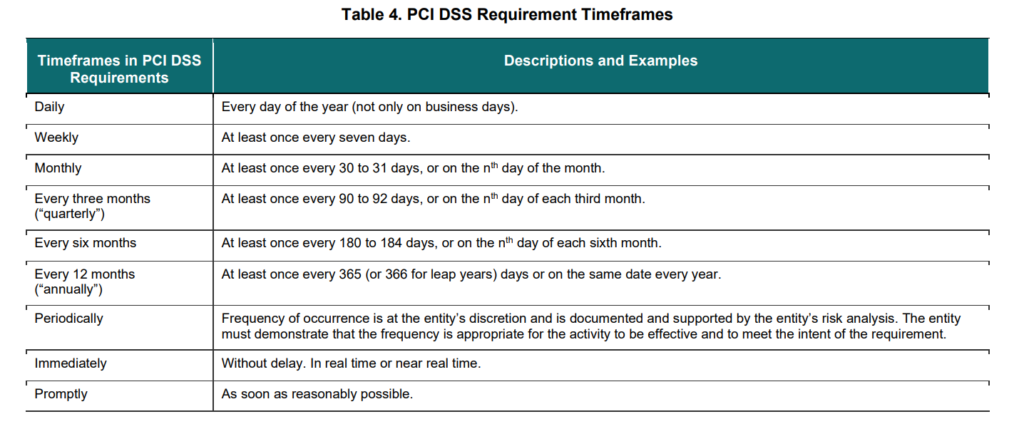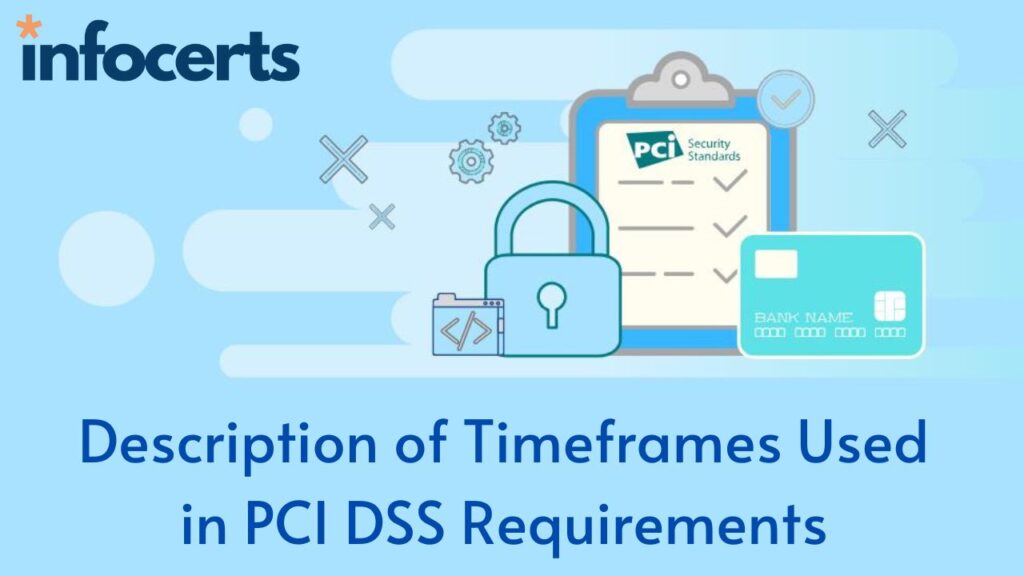Certain PCI DSS requirements have been established with specific timeframes for activities that need to be performed consistently via a regularly scheduled and repeatable process. The intent is that the activity is performed at an interval as close to that timeframe as possible without exceeding it. The entity has the discretion to perform an activity more often than specified (for example, performing an activity monthly where the PCI DSS requirement specifies it be performed every three months).
Table 4 outlines the frequency for the different time periods Timeframes Used in PCI DSS Requirements



For other PCI DSS requirements, where the standard does not define a minimum frequency for recurring activities but instead allows for the requirement to be met “periodically,” the entity is expected to define the frequency as appropriate for its business. The frequency defined by the entity must be supported by the entity’s security policy and the risk analysis conducted according to PCI DSS Requirement 12.3.1. The entity must also be able to demonstrate that the frequency it has defined is appropriate for the activity to be effective and to meet the intent of the requirement.
In both cases, where PCI DSS specifies a required frequency and where PCI DSS allows for “periodic” performance, the entity is expected to have documented and implemented processes to ensure that activities are performed within a reasonable timeframe, including at least the following:
The entity is promptly notified any time an activity is not performed per its defined schedule,
The entity determines the events that led to missing a scheduled activity,
The entity performs the activity as soon as possible after it is missed and either gets back on schedule or establishes a new schedule,
The entity produces documentation that shows the above elements occurred.
When an entity has the above processes in place to detect and address when a scheduled activity is missed, a reasonable approach is allowable, meaning that if an activity is required to be performed at least once every three months, the entity is not automatically noncompliant if the activity is performed late where the entity’s documented and implemented process (per above) was followed. However, where no such process is in place and/or the activity was not performed according to schedule due to oversight, mismanagement, or lack of monitoring, the entity has not met the requirement. In such cases, the requirement will only be in place when the entity 1) documents (or reconfirms) the process per above to ensure the scheduled activity occurs on time, 2) re-establishes the schedule, and 3) provides evidence that the entity has performed the scheduled activity at least once per their schedule.

